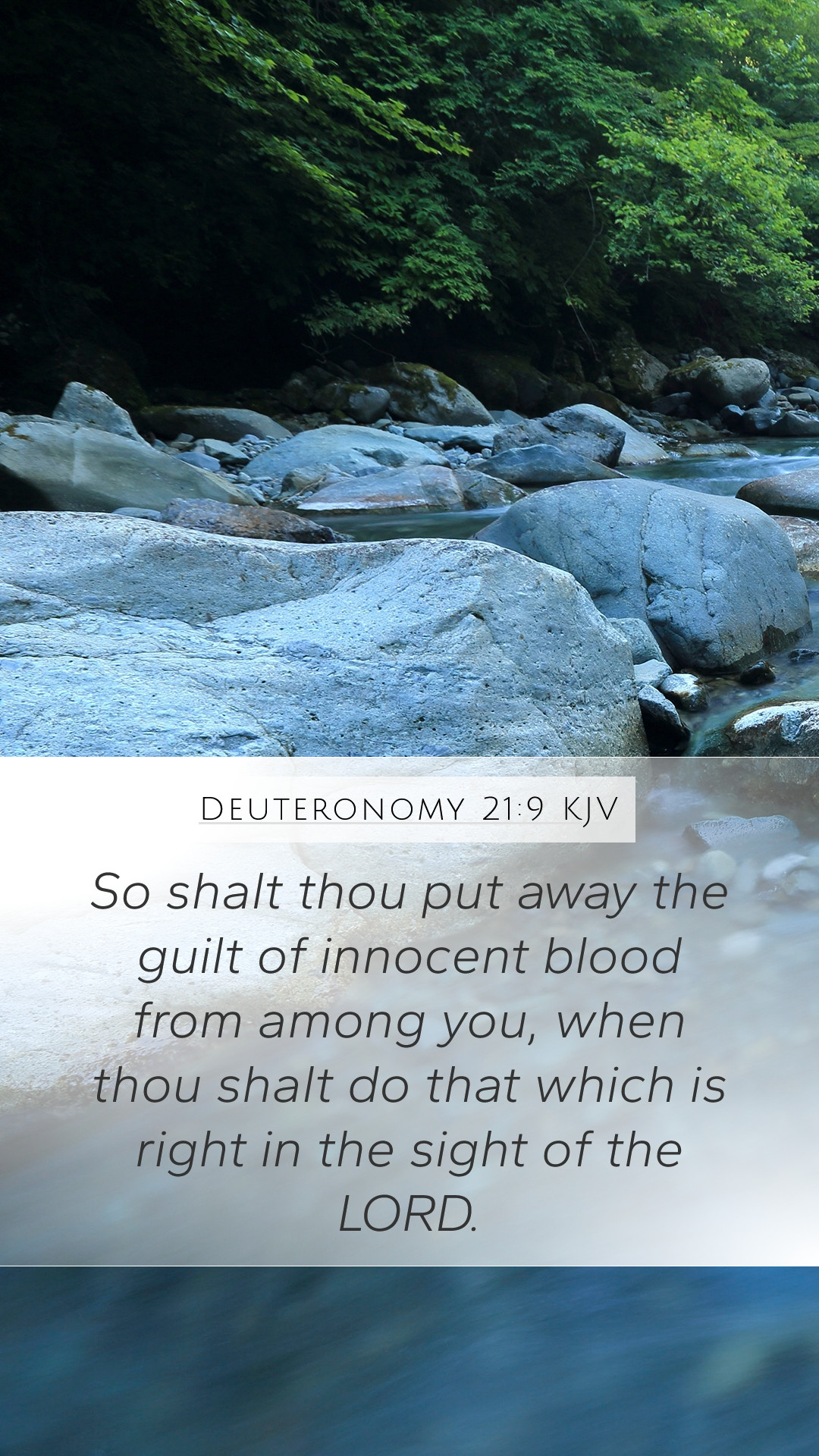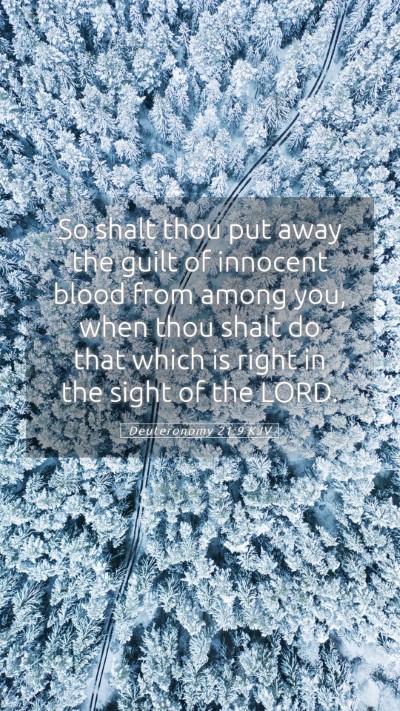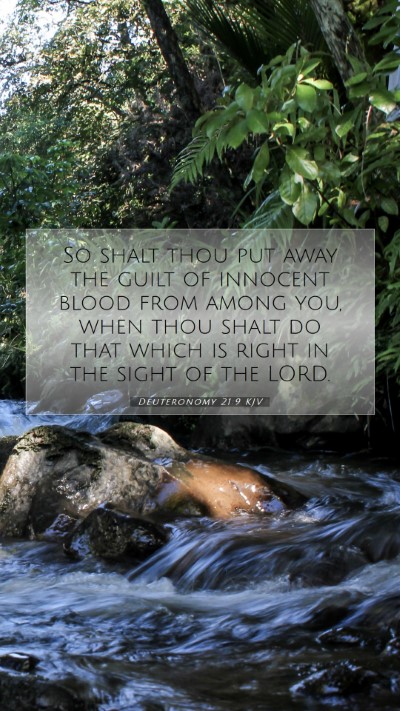Understanding Deuteronomy 21:9
Verse: Deuteronomy 21:9 states, "So shalt thou put away the guilt of innocent blood from among you, when thou shalt do that which is right in the sight of the LORD."
This verse addresses the critical importance of justice and the responsibility of the community to maintain righteousness in their actions, particularly in the context of administering justice for those wrongfully harmed.
Bible Verse Meanings
The meaning of Bible verses can be deep and multifaceted. In this passage, the act of putting away guilt suggests a communal responsibility to ensure that innocent blood does not remain unavenged. This reflects a broader biblical theme where the innocent are to be protected, and the guilty held accountable.
Bible Verse Interpretations
Bible verse interpretations reveal the connection between the law and moral action. The emphasis on doing "what is right in the sight of the LORD" indicates that moral decisions must align with God’s character and commands. This is a guiding principle in Scripture that reaches beyond ancient Israel to inform moral reasoning today.
Bible Verse Commentary
Commentaries from biblical scholars help explain deeper meanings. Matthew Henry notes that this verse underscores the necessity of justice in the community, ensuring that wrongful acts do not go unrectified. He emphasizes the need for rulers and judges to act justly, setting a standard for the people to follow.
Albert Barnes provides additional insights, highlighting the importance of collective responsibility in the community. He states that failing to act justly can lead to greater guilt upon the community as a whole, illustrating that their actions directly correlate with the favor of God.
Adam Clarke expands on the obligation to account for wrongs and the necessity for legal and moral diligence within society, suggesting that God’s justice requires human counterparts to actively uphold righteousness.
Biblical Exegesis
Engaging in biblical exegesis means interpreting Scripture within its own context. Deuteronomy serves as a renewal of the covenant, establishing laws for the people of Israel as they enter the Promised Land. This verse reinforces God’s command for justice and the severe implications of failing to uphold it.
Scripture Analysis
Through scripture analysis, we find that this verse is not merely a legal obligation; it’s a reflection of God’s character. He desires justice and mercy (Micah 6:8), and this passage demands that the people mirror these attributes in their societal structures.
Bible Study Insights
For Bible study groups, this verse can inspire discussions on the nature of justice, community responsibility, and moral integrity. It also opens avenues to explore how these principles manifest in contemporary society and personal life.
Practical Applications of Deuteronomy 21:9
Applying Bible verses to daily life starts with understanding the underlying message. This passage encourages believers to prioritize justice and righteousness, advocating for the marginalized and seeking to rectify wrongs in their communities. Examining our actions in light of this scripture can lead to personal and communal growth.
Related Bible Verses
- Exodus 23:7: "Keep thee far from a false matter; and the innocent and righteous slay thou not: for I will not justify the wicked."
- Isaiah 1:17: "Learn to do well; seek judgment, relieve the oppressed, judge the fatherless, plead for the widow."
- Micah 6:8: "He hath shewed thee, O man, what is good; and what doth the LORD require of thee, but to do justly, and to love mercy, and to walk humbly with thy God?"
Conclusion
Deuteronomy 21:9 serves as a profound reminder of the call to justice and righteousness in a community. By exploring Bible verse meanings and interpretations, we can gain deeper insights into how Scripture calls us to act justly in light of God's standards. These Bible study insights can enrich our understanding of both ancient texts and their applications in our lives today.


